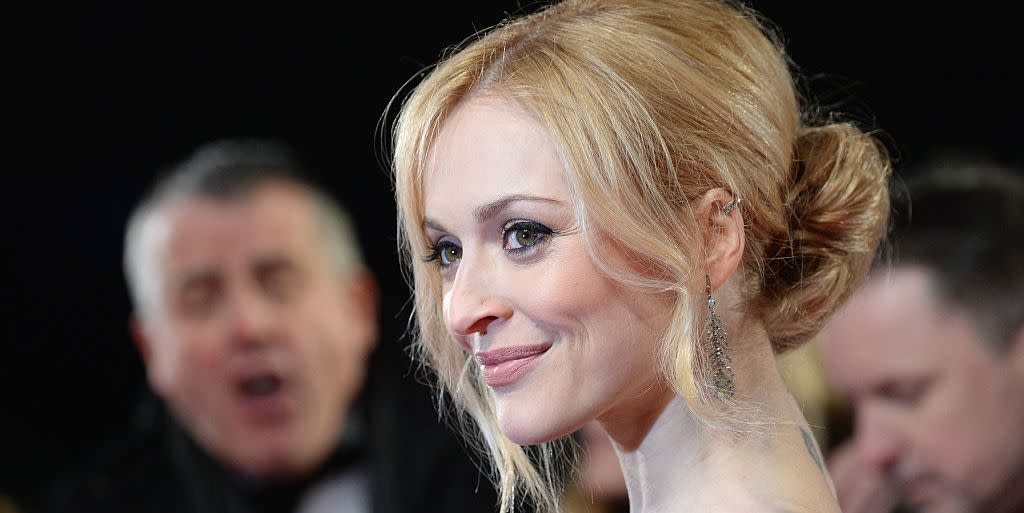Fearne Cotton has revealed how she overcame depression

Fearne Cotton has opened up about bouncing back for a period of depression when she hit her 30s.
Writing the The Big Issue’s Letter To My Younger Self, Fearne said she suddenly became disenchanted with the TV industry and stopped believing in the 'grandeur' of it all, after a very 'intense' and 'unhealthy' relationship with the press in her 20s. This lead her to fall into depression for several years.
'I had to sort of start from scratch again,' she explained. 'I didn’t believe in the myths of what the job or the industry meant... I didn’t believe in having this insane fear-based respect for everybody in it.
'I just dropped all of that, and wanted to start again. And that was terrifying, but it’s been essential in me ending up where I am now, doing a job I care deeply about.'
Admitting that – after suffering from imposter syndrome for most of her 20s and early 30s – she only finally felt like she had the right to 'occupy this space confidently,' after the launch of her mental health podcast Happy Place two years ago.
A post shared by Fearne (@fearnecotton) on Sep 30, 2020 at 2:49am PDT
'Women’s hormones change dramatically around about 35,' she told the publication. 'There’s a huge sudden descent which can result in depression or anxiety. And for me specifically, there were lots of things in my late 20s, early 30s that I felt really not OK about.'
Happy Place – which aims to destigmatise mental health conditions like anxiety, depression and imposter syndrome, by discussing them openly – has helped the 39 year-old to be her most authentic self.
'Now I don’t care, people can say what they want,' Fearne explained. ;I’ve been to hell and back, so now it’s about being me and if people don’t like that, it’s really none of my business.'
Admitting that, during her time as a TV presenter in her 20s, she had an anxiety that she 'didn't belong,' she's since realised that a lot of people feel like the same way, but don't talk about it, and instead 'go along, silently worrying we don’t fit in, and not saying it out loud'.
She added: 'There’s a real liberation in just saying it and having this person who you assume is incredibly confident saying they feel the same. You realise we’re all in the same boat. It’s really lovely knowing that.'
You can read Fearne's full letter to her younger self on The Big Issue website.
Subscribe to Red now to get the magazine delivered to your door.
Like this article? Sign up to our newsletter to get more articles like this delivered straight to your inbox.
You Might Also Like



